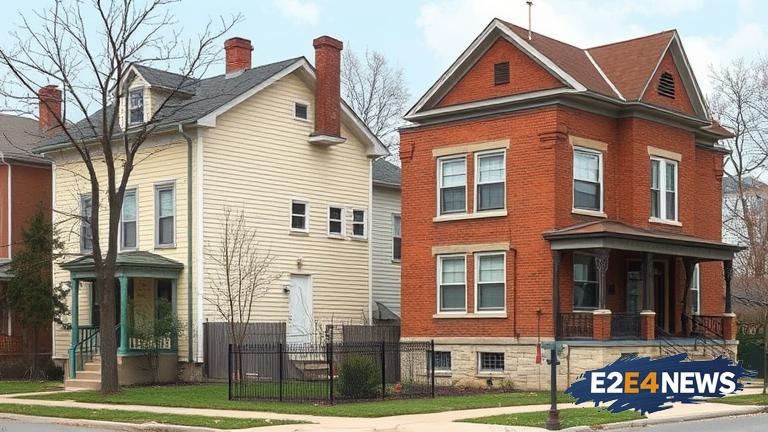A recent investigation has shed light on the issue of disproportionate property tax burdens in Cook County, Illinois. The problem is affecting many residents, particularly people of color, who are facing high property tax bills that are threatening their ability to stay in their homes. According to the report, the average property tax bill in Cook County has increased by over 20% in the past five years, with some areas seeing increases of over 50%. This has led to a situation where many homeowners are struggling to pay their property taxes, with some facing bills that are equivalent to 10% or more of their annual income. The issue is particularly pronounced in communities of color, where residents are already facing significant economic challenges. In some areas, the property tax burden is so high that it is leading to displacement, as homeowners are forced to sell their properties or face foreclosure. The problem is not limited to homeowners, as renters are also feeling the impact of high property taxes. As property taxes increase, landlords are passing on the costs to their tenants, leading to higher rents and reduced affordability. The issue of disproportionate property tax burdens is complex and multifaceted, with a range of factors contributing to the problem. One of the main causes is the way that property taxes are assessed and levied in Cook County. The current system is based on a complex formula that takes into account a range of factors, including the value of the property, the location, and the type of property. However, this system has been criticized for being unfair and biased towards certain types of properties. For example, commercial properties are often assessed at a lower rate than residential properties, which means that homeowners are shouldering a disproportionate share of the tax burden. Another factor contributing to the problem is the lack of transparency and accountability in the property tax system. Many residents are unaware of how their property taxes are being calculated, and there is a lack of clear information about the appeals process and other options for reducing tax bills. To address the issue of disproportionate property tax burdens, a range of solutions are being proposed. One approach is to reform the property tax system, to make it more fair and equitable. This could involve changing the way that properties are assessed, or introducing new exemptions or deductions for certain types of properties. Another approach is to increase funding for programs that help low-income homeowners and renters, such as tax relief programs and affordable housing initiatives. In addition, there are efforts to increase transparency and accountability in the property tax system, through measures such as online portals and public education campaigns. Despite these efforts, the issue of disproportionate property tax burdens remains a significant challenge in Cook County. Many residents are still struggling to pay their property taxes, and the problem is having a disproportionate impact on communities of color. To address this issue, it will be necessary to take a comprehensive and multifaceted approach, that involves reforming the property tax system, increasing funding for support programs, and promoting transparency and accountability. By working together, it is possible to create a more fair and equitable property tax system, that supports all residents of Cook County, regardless of their background or income level. The issue of disproportionate property tax burdens is not unique to Cook County, and it is a problem that is affecting many communities across the United States. However, by addressing this issue, Cook County can serve as a model for other communities, and help to promote a more fair and equitable property tax system nationwide. In conclusion, the issue of disproportionate property tax burdens in Cook County is a complex and multifaceted problem, that requires a comprehensive and multifaceted solution. By reforming the property tax system, increasing funding for support programs, and promoting transparency and accountability, it is possible to create a more fair and equitable property tax system, that supports all residents of Cook County.





